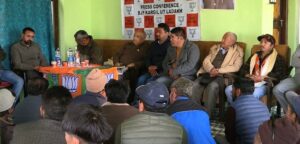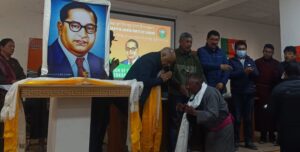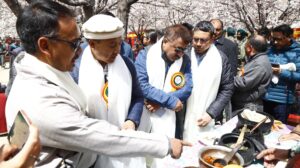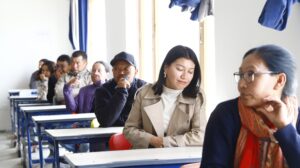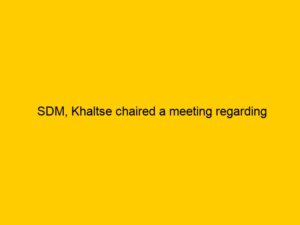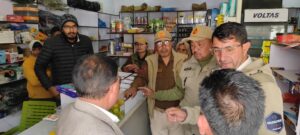World Elder Abuse Awareness Day: HelpAge India unveils report – ‘Ageing in India: Exploring Preparedness & Response to Care Challenges’ in Leh
LEH, June 15: HelpAge India on the eve of ‘World Elder Abuse Awareness Day’ (June 15) released its national 2024 report – ‘Ageing in India: Exploring Preparedness & Response to Care Challenges’ followed by panel discussions with various stakeholders from the private sector, government, community and academics, at the Leh Elders Village, HelpAge India, Shey on June 14.
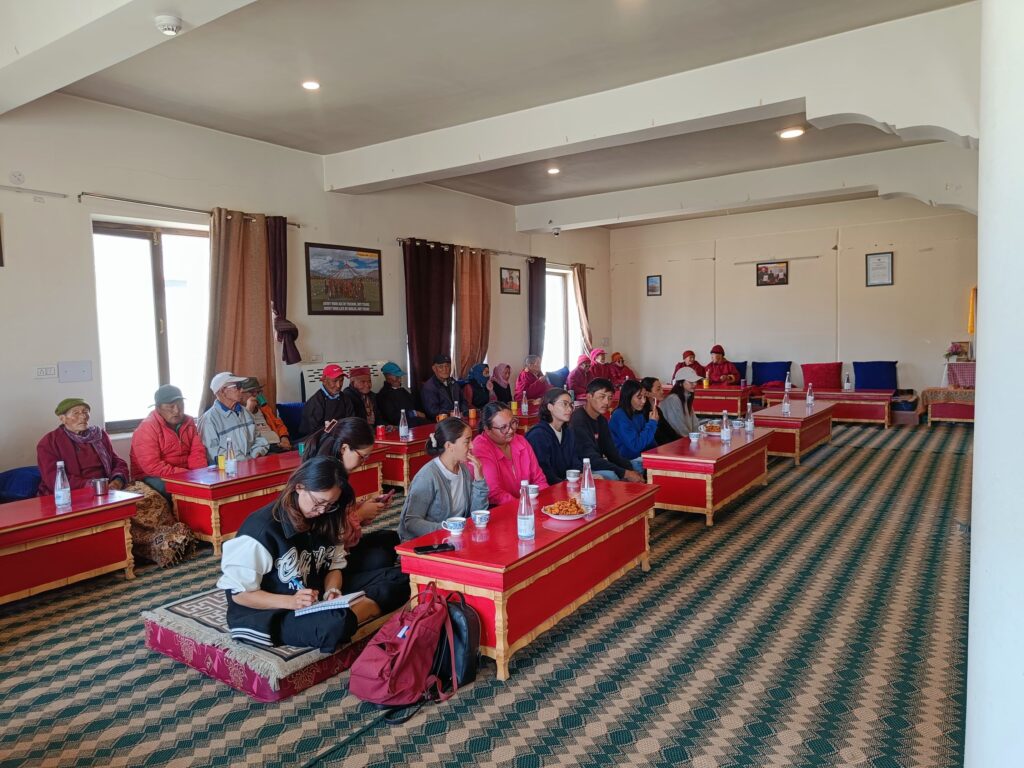
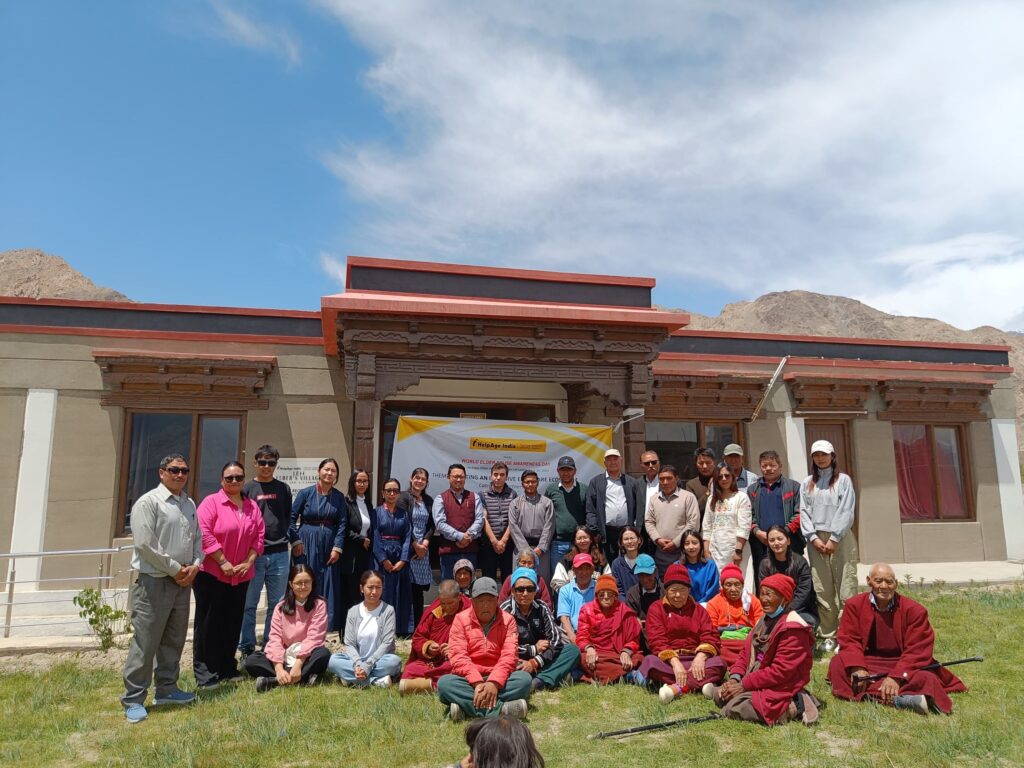
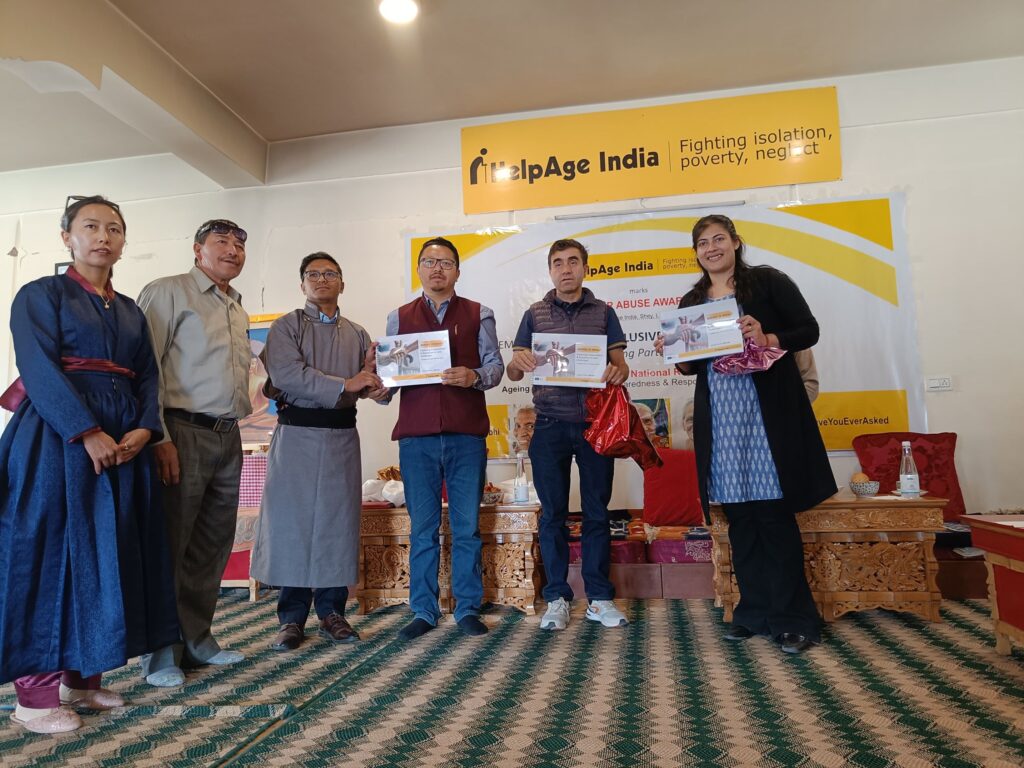
The chief guest on the occasion, Executive Councillor, Stanzin Chosphel, acknowledged HelpAge India’s excellent efforts in transforming Ladakh into an elder-friendly UT. He went on to say that the amenities offered to the residents of the HelpAge India, Leh Elders’ Village Old Age Home are excellent.
Additionally, he pledged to support HelpAge India in any way he could. He continued by saying that the Administration could work with HelpAge India and Ladakh University to conduct research on the elderly in Ladakh, which could serve as the foundation for developing an elder policy in the region.
Additionally, the guest of honour, District Development Commissioner, Leh, Sonam Norboo spoke about the significance of this day and assured district administration’s support to improve care and assistance for the elderly. He requested HelpAge India to arrange similar awareness camps in other parts of Ladakh where people, especially senior citizens, do not have access to such insightful information and education.
Speaking about World Elder Abuse Awareness Day and elder issues, Councillor, LAHDC, Shey-Thiksey, Stanzin Chosfail, said that the younger generation needs to learn to respect and appreciate the elderly because they are valuable gems with societal wisdom.
Deputy Chief, Legal Aid Defence Counsel, Leh, Advocate Nima Stanzin, shed light on the legal aspects, explaining how the elderly can seek help and justice
Shey Home HelpAge India Manager Dawa Zangpo emphasises the significance of establishing an elder policy in Ladakh. According to him, no study has ever been done on the elderly in Ladakh, so there is no research data available. He requested LAHDC Leh and the UT administration for an elder policy for Ladakh.
Assistant Professor, Social Work Department, EJM College, Dr. Tanushree Malakar stressed on sociological and psychological viewpoints on how we can promote senior well-being by appreciating their varied viewpoints.
Students from University of Ladakh and University of Punjab also participated in the event.
The study was conducted across 20 Tier I and Tier II cities, in 10 states. 5169 elders and 1333 caregiver’s primary family members were surveyed. The survey was conducted amongst SEC B & C categories.
The report revealed, financial insufficiency amongst elders, with one in every three elders not having any income in the past one year, more amongst women (38%) than men (27%). 32 % elderly or their spouses, have an annual income of less that Rs.50,000 and only elderly (29%) reported having access to social security schemes i.e., old-age pension / contributory pension / provident fund.
High illiteracy levels further aggravated the situation, with around 40% elderly who are illiterate, reported not having access to any income sources in comparison to 29% respondents who are literate.
Accordingly, nearly 65% of elders reported that they are financially not secure with their current income and access to savings & investments.
On the health front, more than half of the elderly (52%) reported facing at least one challenge related to basic or instrumental activities of daily living. 54% are suffering from two or more Non-Communicable Diseases (NCDs).
Most of the elderly persons (79%) visited government hospitals / clinics / PHCs in the last one year. Almost half (47%) of the super senior citizens, that is those above 80 years, who visited these government hospitals / clinics had no personal income. It is safe to assume that monetary constraints did not allow them to visit any private healthcare facilities.
The family played the role of primary caregivers, when the elderly were bedridden and highly dependent, almost all elders reported that their spouses or children took care of them in this situation. The demands placed on caregivers are significant, with a majority (68%) of caregivers reporting they provide support to their elderly every day. On an average, a caregiver has spent around 20 hours in the past week i.e., close to three hours every day.
Elder abuse continues to be a major concern, with 7% elderly admitting to being a victim of abuse, while 5% elders declined to respond to the question, which was in itself quite telling. Elders from SEC C (11%) reported experiencing higher abuse, in comparison to those from SEC B (4%). The primary perpetrators were their sons (42%) and daughters-in-law (28%).
Sadly, awareness of Maintenance and Welfare of Parents and Senior Citizen Act, which is an important enabling legal resource for the distressed elderly, is still quite low at 9%.
Social inclusion amongst community organizations was low, with very few (7%) elderly reported that they were members of any social organization, the majority of them felt it helped them connect with their peers. 63% felt that such networking keeps them physically and mentally active.

